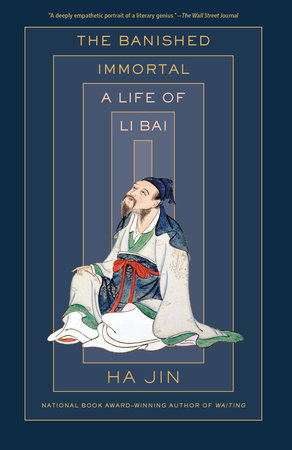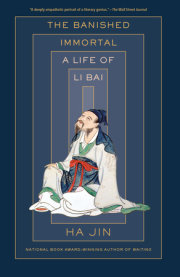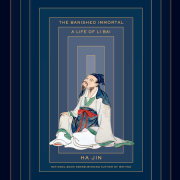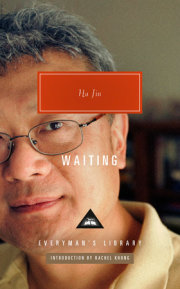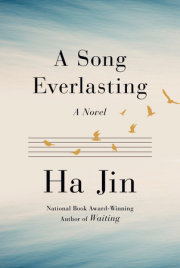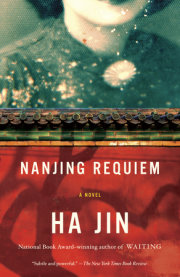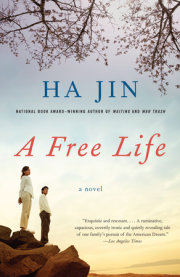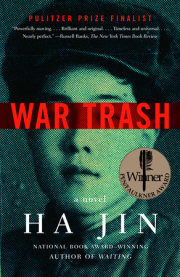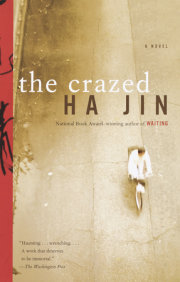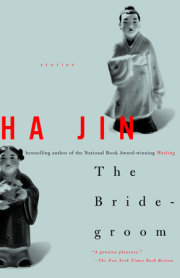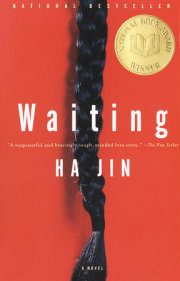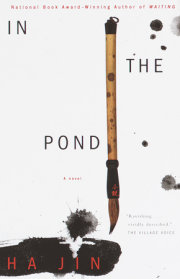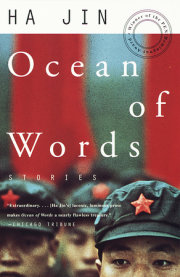PreludeHe has many names. In the West, people call him Li Po, as most of his poems translated into English bear that name. Sometimes it is also spelled Li Bo. But in China, he is known as Li Bai. During his lifetime (701–762 AD), he had other names—Li Taibai, Green Lotus Scholar, Li Twelve. The last one is a kind of familial term of endearment, as Bai was twelfth among his brothers and male cousins on the paternal side. It was often used by his friends and fellow poets when they addressed him—some even dedicated poems to him titled “For Li Twelve.” By the time of his death, he had become known as a great poet and was called
zhexian, or Banished Immortal, by his admirers. Such a moniker implies that he had been sent down to earth as punishment for his misbehavior in heaven. Over the twelve centuries since his death, he has been revered as
shixian, Poet Immortal. Because he was an excessive drinker, he was also called
jiuxian, Wine Immortal. Today it is still common for devotees of his poetry to trek hundreds of miles, following some of the routes of his wanderings as a kind of pilgrimage. Numerous liquors and wines bear his name. Indeed, his name is a ubiquitous brand, flaunted by hotels, restaurants, temples, and even factories.
In English, in addition to “Li Po,” he once had another pair of names, Li T’ai Po and Rihaku. The first is a phonetic transcription of his original Chinese name, Li Taibai, the name his parents gave him. And Ezra Pound, in his
Cathay—his collected translations of classical Chinese poetry—called Li Bai
Rihaku because Pound had translated those poems from the notes left by the American scholar Ernest Fenollosa, who had originally studied Li Bai’s poetry in Japanese when he was in Japan. Pound’s loose translation of Li Bai’s “The River-Merchant’s Wife: A Letter” has been included in many textbooks and anthologies as a masterpiece of modern poetry. It is also one of Pound’s signature poems—arguably his best known. For the sake of consistency and clarity, in the following pages let us stay with the name Li Bai.
He also has several deaths ascribed to him. For hundreds of years, some people even maintained that he had never died at all, claiming to encounter him now and then. In truth, we are uncertain about the exact date and cause of his death. In January 764, the newly enthroned Emperor Daizong issued a decree summoning Li Bai to serve as a counselor at court. It was a post without actual power in spite of its high-sounding title. Yet to any man of learning and ambition such an appointment was a great favor, a demonstration of the emperor’s benevolence and magnanimity—and in Li Bai’s case, a partial restoration of the high status he had once held in the court. When the royal decree reached Dangtu County, Anhui, where Li Bai was supposed to be located, the local officials were thrown into confusion and could not find him. Soon it was discovered that he had died more than a year before. Of what cause and on what day, no one could tell. So we can only say that Li Bai, despite his renown, passed away in 762 without notice.
However, such an obscure death was not acceptable to those who cherished his poetry. They began to give different versions of his death, stories spun either to suit the romantic image of his poetic personality or to provide a fitting conclusion to his turbulent life. In one version, he died of alcohol poisoning; this was in keeping with his lifelong indulgence in drink. Another claims that he died of an illness known as chronic thoracic suppuration—pus penetrating his chest and lungs. The first mention of this comes from Pi Rixiu (838–883) in his poem “Seven Loves”: “He was brought down by rotted ribs, / Which sent his drunken soul to the other world.” Although there is no way we can verify this claim, it sounds credible—such a chest problem could have been caused by his abuse of alcohol. In his final years, Li Bai’s drinking and poverty would have aggravated his pulmonary condition. But the third version of his death is far more fantastic: in this version, he drowns while drunkenly chasing the moon’s reflection on a river, jumping from a boat to catch the ever-shifting orb.
Even though this scene smacks of suicide and is perhaps too romantic to be believed, it is the version that has been embraced by the public—in part because Li Bai, as his poetry shows, loved the moon. Even in his early childhood he was fixated on it. In his poem “Night Trip in Gulang,” he writes, “As a young child, I had no idea what the moon was / And I called it a white jade plate. / Then I wondered if it was a mirror at the Jasper Terrace / That flew away and landed on top of green clouds.” In Chinese poetry, Li Bai was the first to use the image of the moon abundantly, celebrating its loftiness, purity, and constancy. He imagined the moon as a serene landscape with sublime dwellings for
xian, or immortals, who are often surrounded by divine fauna and flora and their personal pets. The beliefs of the ancient Chinese did not separate divinity from humanity, and their imagined heavenly space resembled the human world, with similar (but more fantastic) landscapes and architecture and creatures. If cultivated enough, any human being could rise to the order of divinity, becoming a
xian—many temples in China worshiped these kinds of local deities. Heaven was inhabited by these beings, who were somewhat like superhumans, powerful and carefree and immortal.
The moon in Li Bai’s poetry is also associated with one’s home or native place, and as a beacon shared by people everywhere, universal and ever reliable—“Raising my head, I see the bright moon, / And lowering it, I think of home” (“Reflection in a Quiet Night”). The legend of his attempt to embrace the moon suggests an ultimate fulfillment of his wish and vision—a reversed spiritual ascent. Some of his contemporaries believed him to have been a star in his previous life, and so by joining the moon in the water, he returned to the heavenly space where he had once dwelled. The brief “Li Bai Biography” in the eleventh-century book
New Tang History reads, “When giving birth to Li Bai, his mother dreamed of the star Venus, so he was named Taibai (Venus).”
The poets who came after him have continued to celebrate his moonlit death: even though they know it may not be true, across the centuries they have eulogized the shining moment in their verses. Even today, lovers of Li Bai’s poetry indulge in the myth. One contemporary scholar writes that Li Bai “rode a whale, floating away with the waves, toward the moon.” This heavenward journey is presented from the distraught, drunken poet’s point of view so that Li Bai appears to be returning to his original, divine position. Such romanticization shows the nature of scholarship around Li Bai, which is partly based on legends and myths. Because people want him to have a glorious end, they have been eager to perpetuate the moon-chasing legend.
However, for all the imaginative attempts to glorify him, a single clear voice spoke about his situation presciently when the poet was still alive and in exile. His staunch friend Du Fu laments in his poem “Dreaming of Li Bai”:
冠蓋滿京華 斯人獨憔悴
孰云網恢恢 將老身反累
千秋萬歲名 寂寞身後事
《夢李白》
The capital is full of gorgeous carriages and gowns, But you are alone gaunt and sallow despite your gift. Who is to say that the way of heaven is always fair? At your old age you can’t stay clear of harm. Your fame that’s to last ten thousand years Will become a quiet affair after you are gone.
Copyright © 2019 by Ha Jin. All rights reserved. No part of this excerpt may be reproduced or reprinted without permission in writing from the publisher.

